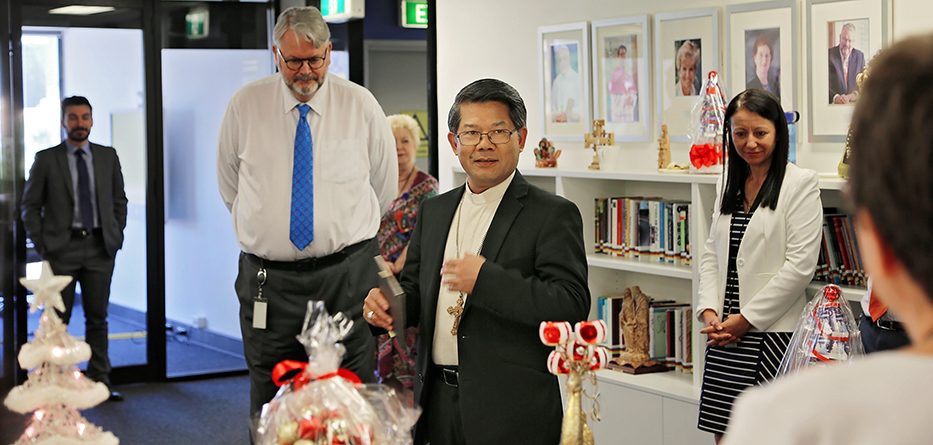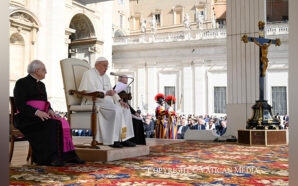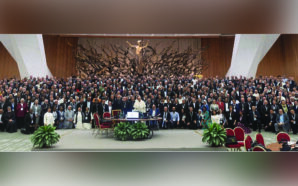Bishop Vincent Long OFM Conv, Bishop of Parramatta – Address to Catholic Education Diocese of Parramatta System Leadership Day, Rosehill Racecourse, 25 January 2018
Forming students and communities for the Reign of God
Part 1: Introduction
I would like to pay my respect and acknowledge the traditional custodians of the land on which this meeting takes place, and also pay respect to Elders both past and present.
What is the point of Catholic education in a secular society? What makes it distinctive and worthwhile for us to dedicate our lives to it? I think these questions are more relevant than ever before because of the profound changes which are happening in the Church and society.
To begin with, I’d like to share with you the story of St Francis of Assisi, known as perfect joy. One day, Francis was traveling with his companion, Brother Leo. It was winter and they both shivered from the cold. Francis called to Leo: “Brother Leo, if it were to please God that this band of lesser brothers became so popular that men from the four corners of the earth would flock to it. This would not be perfect joy.”
A little further on, Francis added: “Brother Leo, if the friars were to make the lame to walk, give sight to the blind, hearing to the deaf, speech to the dumb, write that this would not be perfect joy.”
As they walked, Francis kept adding to this litany, saying “if the brothers knew all languages; if they were versed in all science and Scripture; if they had the gift of prophecy, it would not be perfect joy either.”
An exasperated Brother Leo asked St Francis “what is perfect joy?” to which the Saint answered: “If, when we shall arrive at the monastery, all drenched with rain covered with mud and exhausted from hunger; if, when we knock at the convent-gate calling to the porter to open to us and give us shelter, and instead of welcoming us home, he takes us for bandits, shouting ‘You are but importunate rascals’; and taking a stick, he seizes us by the hood, throwing us on the ground, rolling us in the snow, beat and wounded us. If we bear all these injuries with patience and joy, thinking of the sufferings of our Blessed Lord, which we would share out of love for him, write, O Brother Leo, that here, finally, is perfect joy.”
Francis was – even by the standard of medieval piety – a rather hard man. He used to treat his body which he called Brother Ass (Brother Donkey) very harshly. He would for instance throw himself naked into the thorn bush every time he had a temptation of the flesh. I don’t have a thorn bush around my residence, so I take a cold shower or go jogging instead. I reckon that running seven kilometres a day is much healthier than throwing yourself in a thorn bush or wearing a chastity belt. But I digress.
The story of perfect joy as understood by Francis gives us an insight into his radical Gospel-centred discipleship. It challenges our sense of attachment to false securities like numbers, resources, prestige, affluence and the like. Francis lived in a world and a Church, too, that was steeped in a culture where it mattered hugely to have titles, honours, possessions and other means of making oneself important.
These false securities, I contend, are not only pertinent to the friars but are also temptations for all of us who make the Gospel of Christ the basis of our lives and endeavours. In other words, I would like to suggest that the point of Catholic education is not about success, popularity, prestige et cetera that are measured by worldly standards. What makes Catholic education distinctive and worthwhile for us to dedicate ourselves to it, I believe, is the formation of our students and communities into people and places that embody the Reign of God.
Part 2 will be published tomorrow.








